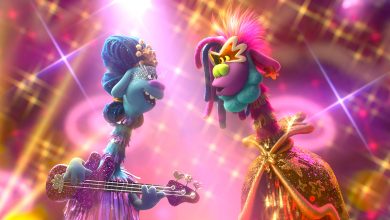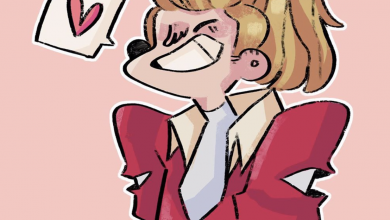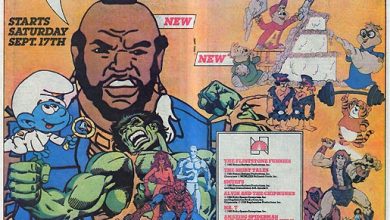Of Wizards and Weddings

Let’s say you are an author who- by combination of inspiration, talent, luck and marketing – happens to have written one of the most successful cross-generational literary phenomena of modern history.
Let’s say, further, that you have written 6 of a 7 book series and are trying to finish up the last and final installment. You know that you have millions of fans who are going to savor, and then pick apart, every word. The films of many of your earlier books have already been released. People know who these characters are and what they look like. They have lots of feelings about what you’ve written and you know that you are never going to please them all.
So, you make some decisions to please yourself. You have set up certain relationships textually from the first book of the series. You may have intended them from the first time you looked up from your free-written first draft and actually hammered out the characters. Or they may have developed organically over time – any writer will tell you that characters don’t always do what you think they are going to, and many a manuscript has ended up being not quite what the author intended originally. But you’ve gotten these people to this place and time. They’ve won the war that was started when their parents were their age, but at great cost. Beloved characters have been killed or maimed. Children have been orphaned. The site of most of the action in the series, really a character in its own right, has been decimated and largely destroyed. This is victory, but not triumph.
So, as a writer, you need to, want to, find a more positive, hopeful, ending. So you write an epilogue. You write this epilogue maybe for yourself, and maybe for the younger fans because no matter how much your series crosses generational lines, it will always be popular with children. So you give everyone a happy ending according to the literary standard that you’re writing within – an idealized Victorianesque world where happily ever after really means something. You want to show survival – not just of the characters who appear, but of the way of life they were defending. You have explored two generations who have walked the halls of the building-that-is-also-a-character and you want to show optimism with a third – the children of those children who risked their lives to make this possible, in a setting that has been restored to its glory. Perhaps, knowing the actors who will play these characters eventually onscreen, you even have in your head the triptych – those three people, aged to look like a facsimile of adults who are old enough to have kids following in their footsteps – smiling together and looking on, beyond the camera.
And you write it.
And a few years later, you come to regret some of the neat tidiness you crafted. You think maybe what felt inevitable is really trite, even twee. That’s not how real life works – high school sweethearts are not likely to make it, at least not happily, long term. So, you confess, as part of an interview with the young woman who played one of these characters, that her character really shouldn’t have ended up long term with her high school sweetheart.
And all hell breaks loose on the internet.
And I finally get to the real point of this post, which is why on glods green earth is much of the world assuming – on the front page of a major British newspaper even – that when J.K. Rowling says that Ron and Hermione shouldn’t have ended up together, the inevitable result is that Harry gets her instead?
Really? Yes really. That is the point of my post. So there.
Of course, there may be more that we’re not seeing yet, since the article from which the quotes originate hasn’t even been fully released, so maybe the editors who wrote these headlines know something we don’t, but regardless, I’d like to look at these assumptions.
My personal visceral reaction was the idea that *of course* one of those leading boys has to get the leading girl, to which we can add a helping of, of course, men/women, boys/girls can’t really be just friends. On a personal level, one of my favorite aspects of the Harry Potter series is the totally platonic relationship between Harry and Hermione. They can have all sorts of adventures, they can live in the same tent just the two of them, they can save Ron from the clutches of Sirius Black, whether he needs it or not, they can even have some moments where the revel in the fact that they have each other and take comfort in their company, without anything in the text so much as suggesting that there’s anything more than sibling-like fondness. The fact that Emma Watson had better chemistry with Daniel Radcliffe in the last movies and damn that dance in the tent where it looks like they might kiss…that’s not canon, folks. Rupert Grint and Watson never did seem to click that well, but I’m inclined to put that down to acting ability and some script issues, not some sort of deeply meaningful change of heart.
We simply don’t have enough stories about non-siblings mixed gender adventures where there’s no romantic tension. There may have been important plot reasons to not have Hermione fall for Harry (and vice versa) – such as maintaining Harry’s outsider status, at least a wee bit and providing some alternative tension when he was isolated for various reasons – but the end result is a beautiful friendship that we need more of in children’s literature. I want my kids to know that relationship can be complicated, messy, beautiful things, whether they are romantic or platonic or complicated.
To that end, maybe Ron and Hermione should have had a bittersweet meeting on Platform 9 and 3/4 where they fondly kissed each other on the cheeks and said an emphatic hello to their respective spouses. Or maybe one of them never married but was there to see off the other’s children as a beloved uncle or auntie. There are a multitude of scenarios that don’t result in the destruction of the delicate and lovely balance that was the Trio’s friendship and still results in that closing triptych where friends can be friends.
(Official film still, courtesy Warner Brothers, via the Harry Potter Wiki.)





YES! I totally agree. It seems that most of the great platonic relationships in literature and film get forced into a relationship or at least bed. Why? Do we demand this as readers/viewers? Maybe. I admit, I squealed when Mulder first kissed Scully on the X-Files. When reading literature, I often find that the author either deals with heterosexual man/woman relationships poorly. It is almost inevitable that they end up in bed together or that one of them does something to damage the relationship beyond repair. One of my best friends is a man that I met in college. We’ve never complicated our friendship like that…and I can say with certainty that the thought has never crossed my mind. Another example of fiction creating an unrealistic happy ending. I would like to think that Hermione became Prime Minister and she and Harry maintained a great relationship into adulthood.
Someone in a comment thread on Facebook mentioned Hunger Games and the Katniss-Peeta-Gale triad as another good example of the inevetable relationship in YA lit, which is really a much more insidious version, I think, since so much of the narrative focuses on the idea of relationships. And I totally agree about the X-Files – I can think of tons of examples of narratives where there is a little bit of gendered, potenentially sexual tension – Moonlighting is the example that always jumps to mind for me – where the narrative just falls apart after being forced into the romantic norm. But as audiences, we WANT it, which I think is interesting in itself. I totally get why JKR made the decisions she did here within that lens, particularly wanting to get the (wizard) chess pieces to the right places on the board for that final image.
The interesting thing is that my reading of Hunger Games is that there isn’t any romantic connection between Katniss and Peeta or Gale. It is mostly a matter of whether someone is an ally or an enemy (Peeta flips back and forth between the two in the first book.) Even when she ends up with Peeta, at the very end, it’s more that he’s available and (having suffered through the games and the rebellion) he understands what she has gone through. But most people insist that Katniss’s relationship with them is primarily romantic, despite practically no evidence in the books, because, well, that’s how it has to be.
What really freaked me out about the Katniss-Peeta thing is the kids in the end.
I could have accepted the “we were both so damaged by this that we simply stuck to each other because there was nobody else who could understand”. What I really didn’t like was how she’s talked into having kids and then once they’re there she’s of course the doting mother.
I could also have accepted “now there are no more Hunger Games I thought about it and found that I could imagine having kids”
I hated that end, especially since I really liked how Collins allows her characters to be broken. There’s so much wrong with that last scene, just like with the Harry Potter scene.
The other aspect of this is the “the good guy gets the girl” narrative. Or in this case, the two good guys get the two girls.
Because we all know that Life owns guys relationships.
Yesssssssss. Please people, there are other options!
I think it’s understandable that she wanted her characters to have a happy ending because that was certainly not what she was likely seeing down her own road before the first HP book was published. And Draco Malfoy should have been on prison work release pushing a broom on the Hogwarts Express in the last scene.